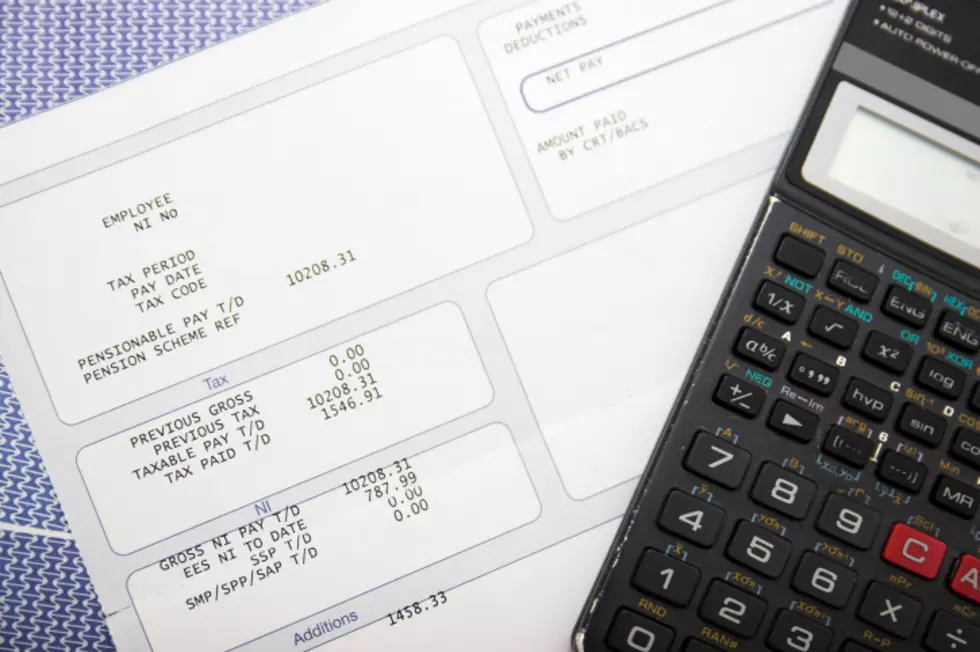![Some Less-Thought-Of Tax Deductions [SPONSORED]](http://townsquare.media/site/385/files/2013/02/Tax-deductions-StockMonkeys.jpg?w=980&q=75)
Some Less-Thought-Of Tax Deductions [SPONSORED]
By Barry S. Kleiman, CPA, Untracht Early LLC
[onescreen item="5018541"]
There are many tax deductions people can take, some less obvious than others. While you can’t claim the family pet as a dependent, did you know that expenses for the care of a service dog qualify for the medical deduction? We’ve partnered with the NJ Society of CPA’s to examine some other not-so-obvious tax deductions:
Out-of-Pocket Charitable Contributions
Aside from donating money and slightly worn clothes, you can write off out-of-pocket costs incurred while volunteering for a charity. Keep your receipts, and if your contribution totals more than $250, you'll need a written acknowledgement from the charity. Car expenses while performing charitable work are also deductible. You can deduct actual expenses or use a standard mileage rate (14 cents per mile for 2012 and 2013).
Casualty Loss
If you suffer damage, destruction or loss of personal property from an unexpected event, such as a hurricane, you may be able to deduct the loss. Generally, your deduction is equal to the smaller of your adjusted basis in the property and the decrease in fair market value due to the casualty. A deduction is not allowed to the extent you receive insurance or any other reimbursement, and the loss is further reduced by $100 and 10 percent of your adjusted gross income. The $100 and 10-percent limits don’t apply to business property losses. If you have a casualty loss from a federally declared disaster, you can deduct the loss in the year it occurred or the year immediately prior.
Refinancing Points
When you buy a house, you can deduct points paid to get your mortgage. If you refinance, however, you must deduct the points on the new loan ratably over the life of that loan. In the year you pay off the loan, you can deduct any remaining balance. The exception applies if you refinance with the same lender – in this case, you add any new points paid to the balance from the previous refinancing and deduct that amount ratably over the life of the new loan.
Job Hunting and Moving Expenses
There are deductible job search expenses. As long as you are looking for a new job in your present occupation, you can deduct job search costs as miscellaneous expenses to the extent that your total miscellaneous itemized deductions exceed 2 percent of your adjusted gross income. Deductible job search expenses include transportation, food and lodging, employment agency fees, resume printing costs, business cards, postage and advertising.
Moving expenses related to a new job are deductible. To qualify, your new job must be at least 50 miles farther from your old home than your former job was from your old home. You must also move within one year of starting your new job and be employed full-time for at least 39 weeks during the first year after you move. If you qualify, you can deduct your moving and travel expenses (meals not included) of getting yourself and your household goods to your new home. You get this write off even if you don't itemize.
Estate Tax on Income in Respect of a Decedent
You can deduct the federal estate tax attributable to income in respect of a decedent (IRD) that you as a beneficiary include in your gross income. A common IRD item is an inherited IRA. You get an income tax deduction for the amount of estate tax paid, if any, on the IRA assets you received.
This article has been sponsored by the New Jersey Society of CPA’s. For further information, you can view their website by clicking HERE.
Barry S. Kleiman, CPA, is a principal at Untracht Early LLC in Florham Park. He is a member of the New Jersey Society of CPAs. Contact him at bkleiman@untracht.com.
More From New Jersey 101.5 FM









